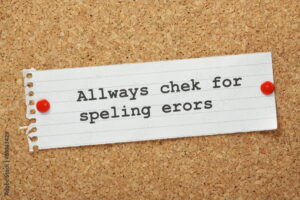![]() For this debate, Vanessa and I argued that we should continue to teach skills that can be easily carried out by technology. This debate was never about denying students the opportunity to use technology in the classroom or that old school ways of teaching that are not working anymore should not be changed. As with many of the debates up to this point, we have seen the benefits of implementing technology, at least to some degree, in the classroom. There are many great benefits of utilizing technology to improve learning for students. The debate concerned whether skills such as cursive writing, multiplication tables, and spelling should continue to be taught, not how they are being taught. Are these skills still relevant in the world that we currently exist in? Even after the opposing team made their argument, I still believe they are relevant and should be taught. Is it advantageous to require children to spend excessive amounts of time on rote multiplication drills or memorizing hundreds of words? Probably not. Such methods are unlikely to be effective or beneficial for their learning.
For this debate, Vanessa and I argued that we should continue to teach skills that can be easily carried out by technology. This debate was never about denying students the opportunity to use technology in the classroom or that old school ways of teaching that are not working anymore should not be changed. As with many of the debates up to this point, we have seen the benefits of implementing technology, at least to some degree, in the classroom. There are many great benefits of utilizing technology to improve learning for students. The debate concerned whether skills such as cursive writing, multiplication tables, and spelling should continue to be taught, not how they are being taught. Are these skills still relevant in the world that we currently exist in? Even after the opposing team made their argument, I still believe they are relevant and should be taught. Is it advantageous to require children to spend excessive amounts of time on rote multiplication drills or memorizing hundreds of words? Probably not. Such methods are unlikely to be effective or beneficial for their learning.
While it is true, as highlighted by the opposing team, that digital literacy is essential for our children to navigate the modern world, there are still professions like nursing, where strong writing skills are still necessary. Based on my experience in a multi-generational workplace, I have found that skills sometimes viewed as outdated continue to be essential in today’s work environment. We need to be able to communicate with individuals from different generations and that requires a diverse skill set. Furthermore, it remains essential for us to evaluate whether the output generated by the technology is logical and appropriate. Individuals may underestimate the importance of fundamental skills, particularly when they already possess them and may not realize how much they use them in their daily life.
 Both the research and the debate discussions appeared to have a consensus that rote memorization may not be the most effective approach, and that instructing students to memorize words is generally not considered the most beneficial teaching method. Elizabeth Heubeck discusses the importance of children learning how to spell. Spelling is imperative for reading and writing, and this blog discusses how phonics can be used as a method for teaching spelling, as an alternative to rote memorization. In the article, Handwriting? Worth the trouble these days?, it examines how due to an over reliance on technology there are more spelling mistakes and grammar issues that affect the ability to communicate in a clear manner. Although, there are many benefits to knowing how to keyboard, handwriting is still an essential skill for students to possess. Cursive writing is associated with improved retention and comprehension, as well as enhanced fine motor skills. Individuals who take notes by hand may recall information more effectively because they paraphrase content rather than transcribing it verbatim.
Both the research and the debate discussions appeared to have a consensus that rote memorization may not be the most effective approach, and that instructing students to memorize words is generally not considered the most beneficial teaching method. Elizabeth Heubeck discusses the importance of children learning how to spell. Spelling is imperative for reading and writing, and this blog discusses how phonics can be used as a method for teaching spelling, as an alternative to rote memorization. In the article, Handwriting? Worth the trouble these days?, it examines how due to an over reliance on technology there are more spelling mistakes and grammar issues that affect the ability to communicate in a clear manner. Although, there are many benefits to knowing how to keyboard, handwriting is still an essential skill for students to possess. Cursive writing is associated with improved retention and comprehension, as well as enhanced fine motor skills. Individuals who take notes by hand may recall information more effectively because they paraphrase content rather than transcribing it verbatim.
St Peter’s Preparatory School emphasized that understanding not just answers, but also the reasons and processes behind them, is vital. Strong multiplication skills can improve cognitive abilities, enhance communication, improve memory, and lessen dependence on technology. Having a basic understanding of mathematics and the ability to perform calculations mentally can be useful in many everyday situations. The opposing side claims teaching these skills in school uses too much instructional time, but I believe learning basic skills ultimately saves time in real life. Technology is not always fully accurate or reliable, so it is important to have the skills to evaluate and critically assess whether the answers provided by technology are correct.
 The opposing side claimed that teaching skills like spelling, cursive writing and multiplication tables is outdated and that teaching digital literacy, like coding, is essential. While technology offers many benefits and children need these skills for future jobs, the issue is not simply one of choosing between the two approaches. The methods used to teach these skills should evolve beyond simple memorization. However, this issue pertains to outdated instructional approaches rather than the inherent value of the skills themselves. These are different issues that should be addressed separately. According to the article provided by the other team, it is noted that the union leader, Ms. Blower, was
The opposing side claimed that teaching skills like spelling, cursive writing and multiplication tables is outdated and that teaching digital literacy, like coding, is essential. While technology offers many benefits and children need these skills for future jobs, the issue is not simply one of choosing between the two approaches. The methods used to teach these skills should evolve beyond simple memorization. However, this issue pertains to outdated instructional approaches rather than the inherent value of the skills themselves. These are different issues that should be addressed separately. According to the article provided by the other team, it is noted that the union leader, Ms. Blower, was
“not saying that children should not learn their tables” but she was concerned about “pressing times tables onto children in a way that we don’t think is necessarily helpful, and then saying that schools are failing because they are not necessarily doing the test, not necessarily all achieving the test results at the right time”
This statement refers to the approach used to teach these skills, not to their continued relevance or importance in education. Technology plays a role in both education and employment, making it important for children to develop digital literacy skills. However, it is also necessary to ensure that learning fundamental skills such as critical thinking and comprehension is not overlooked due to increased dependence on technology. The article notes that Derek Kelley’s office frequently receives community feedback regarding concerns about technology overuse. In response, efforts are being made to ensure an appropriate balance in students’ use of technology. It is about balance. Students should learn digital literacy without sacrificing basic skills like spelling.
Thanks for your thoughtful response! I really appreciated how you emphasized that this debate isn’t about choosing between tech and basic skills, but about how we teach those skills. You made a great point about professions like nursing still requiring strong writing skills and how foundational knowledge supports critical thinking.
I agree that balance is key. While I still believe that tech can sometimes widen the gap for certain learners, I also see how keeping basic skills when taught in relevant and engaging ways helps build confidence and independence. Thanks for highlighting the importance of evolving teaching methods rather than throwing out valuable skills. Great work on the debate as well!
Hi Jenna,
I really appreciate your thoughtful post on whether foundational skills like cursive writing, multiplication tables, and spelling remain relevant in today’s tech-driven classrooms. Your argument that these skills still hold value resonates with me, especially as I reflect on my own experiences.
In my own classroom, I’ve observed firsthand how foundational skills, such as printing (proper letter formation), multiplication tables, and spelling, continue to play a vital role in students’ development. While technology offers numerous advantages, these skills provide a strong foundation for critical thinking, memory retention, and effective communication.
Thank you for sharing!
Hi Jenna,
Thank you for such an insightful post. Two points you made really stood out to me: the multigenerational workforce and how technology plays a role in both education and employment.
Your point about the skills needed for a multigenerational workplace really resonated with me. It is a reality we often overlook in education, even though it has major implications for how we prepare students for life beyond school. We talk so much about getting students ready for the “real world,” yet we rarely stop to discuss what this looks like or who’s in it. Today’s learners are entering workplaces where they will likely collaborate with people from a variety of generations, each bringing unique communication styles, work habits, and levels of comfort with technology. If we don’t teach foundational skills, how do workplaces bridge the gaps between generations?
I also agree with your point about how technology bridges both education and employment, and how important it is to ensure students still develop fundamental skills. Overuse of technology is a real concern, and educators need to be mindful of how and when it’s used. Striking the right balance is key to helping students become capable, well-rounded learners.
Thanks for sharing!